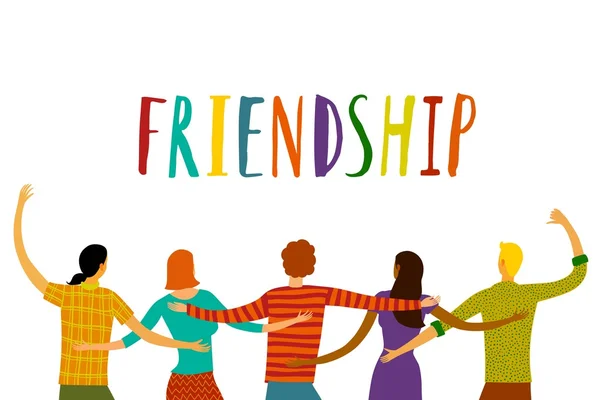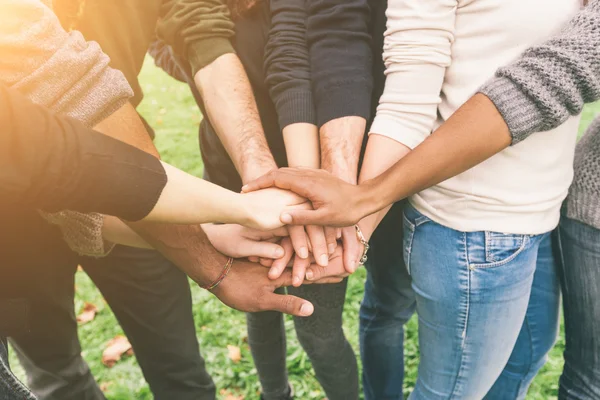Value friends, value friendship!
Friendship, the term evokes many emotions. All of us become nostalgic about the friends we had to leave in our life’s journey. There are many types of friends like neighbourhood friends, colony friends, parent’s friends’ kids, school friends, school bus friends, college friends, office friends, pen friends, virtual friends, and in Mumbai, we have building friends and train friends as well. With all of these, we have a unique and deep bond. We get emotionally attached to them while sharing our hearts and head’s musings.

Life becomes meaningful, valuable, and so much more liveable when we have friends around us. Some of these are so sincere in their friendship that we become almost one with them. But when they leave for any reason like the change of place or some freak dispute, we get shattered.
“One measure of friendship consists not in the number of things friends can discuss, but in the number of things they need no longer mention.” – Clifton Fadiman
As goes the saying: A friend in need is a friend indeed!!
What it implies is that when you need to be heard, your friend needs to hear what you have to say.
And you need to hear what she has to say as well.
Have you ever been listening to a friend’s tale of woes?
Impatiently waiting to tell her what you think she needs to do? Communication is one of the most critical aspects of friendship. Whatever, it may be, you need to communicate, you need to listen, you need to share.

Sometimes, it so happens that if your friend tries to be grateful for the advice, she is probably steaming with resentment on the inside because that is not at all what she was looking for. You need to figure it out with her and explain your viewpoint. Probably, she did not want to hear what you were trying to explain. Now, it is your turn to step into her situation and then work around a solution. Maybe this is what she wanted!
“Be slow to fall into friendship, but when you are in, continue firm and constant.” ― Socrates
But sometimes, you are on the other side of this quandary. Now, what to do? Recently, a building friend of mine narrated her experience with her best friend. She was very disturbed about certain family situations, proverbially down in the dumps, and she made the mistake of sharing this with her best friend whom she considered a confidante. While she aspired for an empathetic ear, she curtly replied: “Shift your perspective.”
She was not looking for this reaction to climb out of her mood. She was shattered. She just wanted someone to know that she was down & out. The more this friend of hers lectured with her quick-fix solution, the more her efforts backfired. By the time their conversation was over, she just crawled under her covers for the next several weeks and avoided her friend, probably forever!
As aptly expressed by writer Brenda Ueland, “Listening is a magnetic and strange thing, a creative force… When we are listened to, it creates us and makes us unfold and expand. Ideas begin to grow within us and come to life.”

Like other relationships, friendships are not immune to interpersonal conflict or disappointment, which frequently arises from:
- Misunderstandings
- Inappropriate assumptions
- False beliefs
If you stick to the dictat that friendships will last no matter the distance, you are in for a shock.
As distant friendships may not last long, it is also a fact that their strength will probably be diminished. The friendship landscape is constantly evolving. The scenario is geographically very mobile. Childhood besties move across the globe because of their parents’ jobs. High school and college friends move for academic or professional reasons. Adult friends accept transfers or new jobs that draw them miles away. In retirement, friends leave yet again to follow their grandchildren or retire to more conducive climates.
As much as we try to remain friends, it is often impossible. Like other species, we rely not only on sight but also on sound, smell, and especially touch. The problem with long-distance friendships is that we cannot use all our senses to support one another.
“Sweet is the memory of distant friends! Like the mellow rays of the departing sun, it falls tenderly, yet sadly, on the heart.” – Washington Irving
Times are different as we can use Facebook, Skype, email, and various other technologies to communicate. However, seeing one another on a 13-inch screen just does not cut it for the long haul. But works!!
Laura Guerrero, coauthor of Close Encounters: Communication in Relationships, wrote, “If you are close enough to touch, it is often the easiest way to signal something. We feel more connected to someone if they touch us.”

There are a few simple tips on how you can be a good friend to your friend:
- Listening to understand will always get you farther than listening to respond.
- It is more important to validate your friend’s feelings than it is to share your story.
- Friendships do not always survive distance and time, but we learn something from every relationship we cultivate.
- Your friends and romantic partners are both important parts of your life.
- If you keep these things in mind, you are well on your way to being a better friend.
“Friendship marks a life even more deeply than love. Love risks degenerating into obsession, friendship is never anything but sharing.”― Elie Wiesel
Be a good friend and be happyHo!

